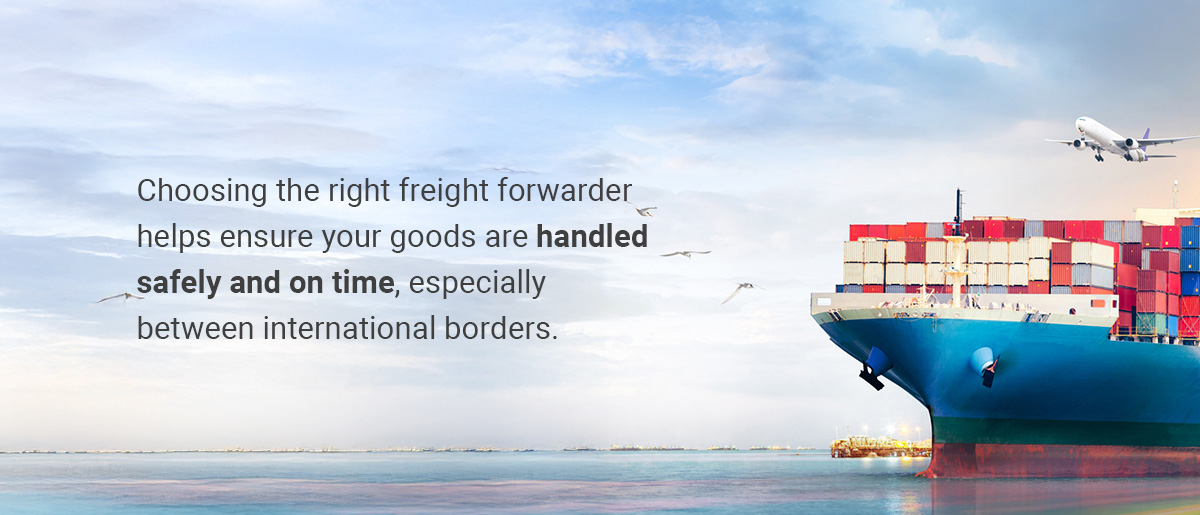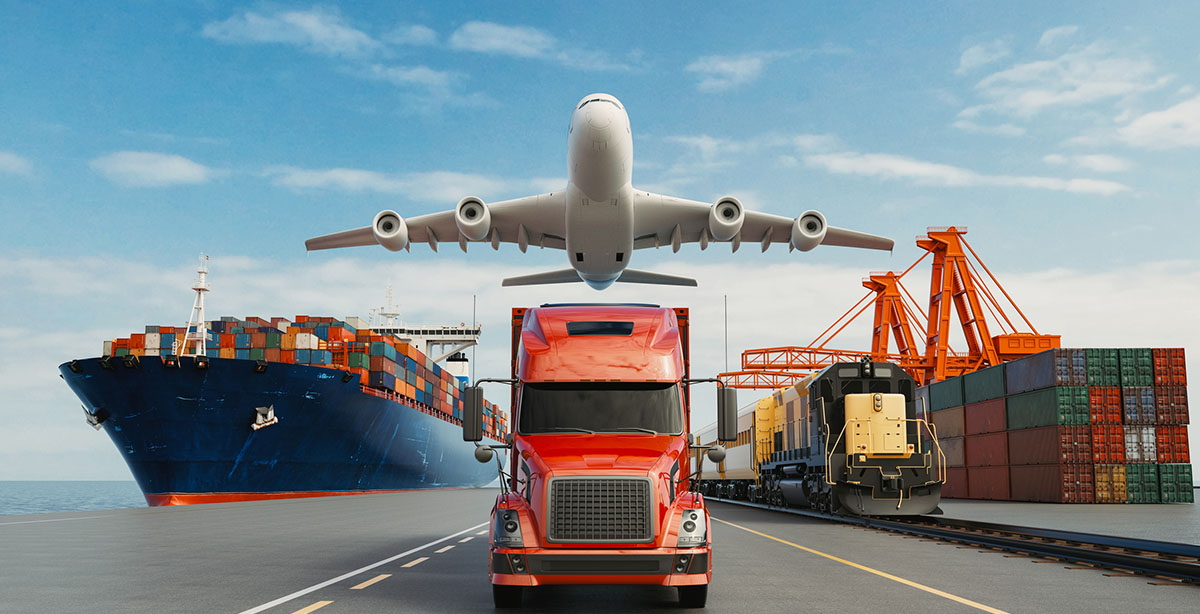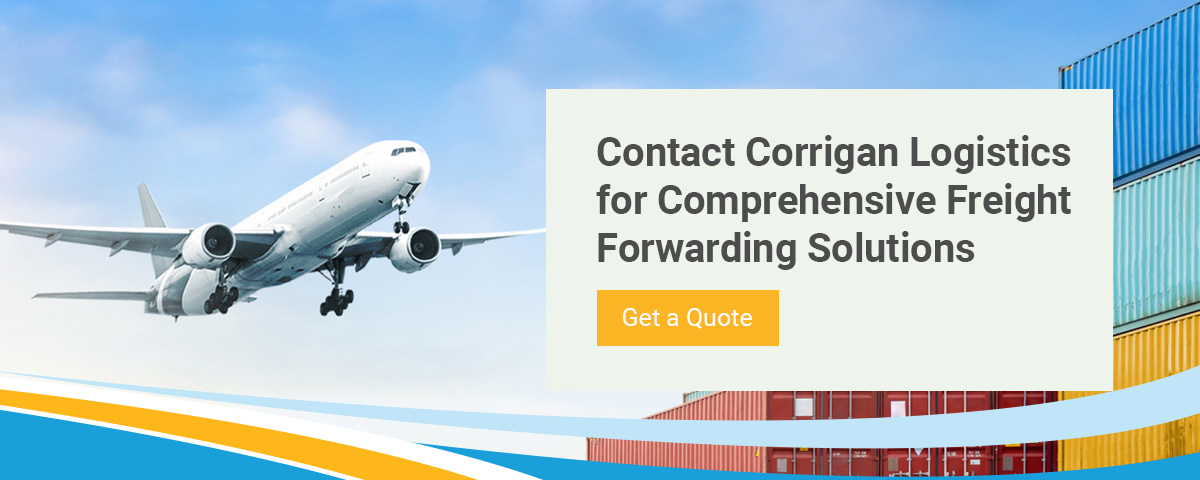Finding a freight forwarding service that suits your needs is critical to the success of your business. Whether you’re an e-commerce company or otherwise involved in import, export and local shipping, partnering with a reliable freight forwarder ensures the smooth and timely movement of your goods to their destinations.
The right freight forwarder streamlines your logistics and helps you manage your shipping costs and navigate complex shipping regulations in different territories. They also enhance your operational efficiency and reduce delays in your supply chain.
To choose the best freight forwarder for your business, consider the five key pointers below.
1. Determine Your Shipping Requirements
Make a list of shipping details and requirements before hiring a freight forwarding service. Reviewing your unique needs helps narrow down the type of transportation and special services necessary for your business. Your list should include the following:
- Shipment origin and destination: Make sure the freight forwarder is experienced in shipping to and from the required locations. Check if they deliver to a specific country if you’re shipping goods internationally.
- Type of goods for shipping: These can be anything from clothing and perfume to perishable food products and construction equipment. The nature of your goods will determine how freight forwarders handle your shipment.
- Modes of shipping: Determine your chosen shipping modes, whether by air, sea or land. A freight forwarder can work with you to find the most suitable mode of transportation and routes for your goods.
- Timeline for delivery: How fast do goods need to reach their destinations? If you prioritize timely and immediate delivery, you need an experienced freight forwarder with a track record of swift deliveries.
Assess Special Shipping Needs
While most freight forwarders handle many types of cargo, it’s best to identify special shipping requirements you might need. Selecting a freight forwarding service that can accommodate your requests will help ensure safe and smooth transport.
You may specify the following requests:
- Special packaging: Request this if your product is fragile or highly valuable, such as glassware, electronic gadgets, medical equipment or high-end furniture.
- Cold warehouse storage: You’ll likely need cold storage for perishable goods, such as fresh fish, meat, vegetables, fruits, plants or flowers.
- White glove services: White glove services include final placement and professional installation at the target location for shipments that require extra care, such as electronics, healthcare equipment and retail fixtures.
- Final mile delivery: If you need accurate and timely product deliveries straight to your customers’ location, consider dependable final mile delivery.
- Large containers: This is for bulky, over-dimensional cargo, such as industrial equipment and large construction materials, that exceed standard container size and weight limits. You’ll need to request high-cube or open-top containers for shipping.
2. Know Their Industry Specializations
It’s best to find a freight forwarding company that specializes in handling goods common to your industry. That way, you know they can take care of your shipment, whether you’re running a retail company, e-commerce platform or manufacturing business. Choosing the right freight forwarder helps ensure your goods are handled safely and on time, especially between international borders.

Freight forwarding companies provide specialized services for different industries. Some of these services include the following:
- Retail fixtures: Some freight forwarders offer tailored retail relocation management for stores, complete with white glove service.
- Premium electronics: Get safe and secure handling for sensitive electronics and high-value equipment, including real-time location updates.
- Healthcare equipment: Freight forwarders who specialize in medical equipment transportation offer time-sensitive delivery with dedicated support teams.
- Hospitality installation: Businesses like hotels and restaurants rely on freight forwarders to deliver and set up furniture, fixtures and equipment.
3. Consider Their Geographic Reach
When picking a freight forwarder, look for a company with the expertise to navigate familiar and new markets. While not strictly necessary, the ideal freight forwarder may have a location close to your business’s warehouse or supplier facility, and they should have solid and reliable networks throughout the country. They should also have a proven track record of handling shipments to your destinations, whether they’re domestic or international.
If your business is expanding or you’re new to international shipping, choose a global freight forwarder that can adapt to your growth. Freight forwarders should have an extensive knowledge of customs clearance requirements to help you avoid delivery delays and additional fees. They should offer guidance in navigating complex customs documentation to streamline the delivery process.
4. Ask for a Quote and Understand the Fees
Before selecting a freight forwarding service, ask about fees and get a quote. The quote should include essential details so you know exactly what you’re paying for. From there, you can estimate if their service fits within your budget. Freight forwarding costs depend on many factors, such as the following:
- Mode of shipping
- Type of goods for shipping
- Cargo size, weight and volume
- Type of container
- Travel distance
Below is a list of common freight forwarding fees:
- Document handling and booking fees
- International shipping fees
- Surcharges like inland fuel costs
- Customs clearance payment
- Delivery fees
If you don’t understand all of the charges, make sure to clarify with the freight forwarder to avoid unexpected fees.
5. Select a Reputable Freight Forwarder
When choosing the right freight forwarder, do some research to ensure they are dependable, experienced and professional. Perform these three crucial evaluations:
- Assess their network: Inquire about the freight forwarder’s partnerships with carriers in local and international areas. A strong global network typically offers more shipping options and competitive rates.
- Check their communication: Your freight forwarder should be responsive to inquiries, provide real-time updates and be honest about any potential delays. Clear and transparent communication is crucial for coordination.
- Look up their customer reviews: Check online testimonials or ask your colleagues for references to get further insight into their reliability. This will help you evaluate the freight forwarder’s service quality and overall reputation.
Contact Corrigan Logistics for Comprehensive Freight Forwarding Solutions
Relying on a trusted freight forwarder allows you to enjoy safe, transparent and timely shipping. Corrigan Logistics provides international freight forwarding solutions with a vast network of global partners. Let us manage every aspect of your freight transportation needs with multimodal shipping options, combining sea, air, road and railway transport for timely deliveries.
Corrigan Logistics is a leader in freight forwarding services and has nearly a century of industry expertise. We provide value-added logistic services, including warehousing, asset management and reverse logistics. For specialized products requiring white glove services or final mile delivery, our experienced team provides tailored services according to your needs.
Contact us online today to learn how we can provide customized freight forwarding solutions to empower your business.




